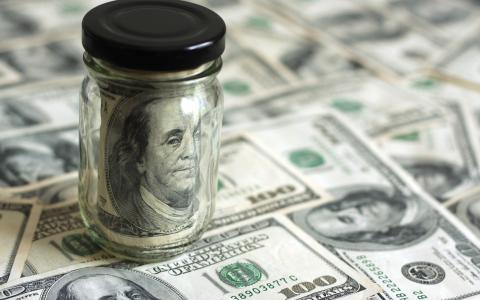
(Yahoo!) -- On March 12, 2009, Bernard Madoff pleaded guilty to perpetrating the largest Ponzi scheme in history, a fraud of almost $65 billion.
In a coincidence 10 years later, a few former victims of embezzlement — not Madoff’s — are launching a type of insurance to protect against unscrupulous financial-services professionals.
The product is called Capital Shield, and the premise is simple: it’s an embezzlement insurance that will cover you if your asset manager or investment advisor takes your money and runs.
“The genesis of everything is always personal,” Travus Pope, a co-founder and managing partner, told Yahoo Finance. Pope and two other Capital Shield co-founders lost around $1.5 million between the three of them due to embezzlement.
“They collected zero dollars from them,” Pope said. “I got a judgment, but they filed for Chapter 7 [bankruptcy] two days before. Recouped zero, still pursuing,” he said.
Pope and his partners shopped their idea of embezzlement insurance around, and found Berkley FinSecure to underwrite. (Berkley FinSecure is owned by insurance holding company W.R. Berkley.)
The uniqueness of the product makes it difficult to appraise, so the terms are simple: $1,500 per million, per year, with a maximum of $10 million — for now. (After a launch period, the company may expand this.)
“There is no actuarial pool for this,” said Pope. “There’s always been an issue when you protect institutions, but there’s never been coverage for an individual.”
The numbers come from the underwriter’s crime insurance policies for banks and broker-dealers, which Pope said gives them some insight into how likely payouts may be.
If something happens, there’s a deductible of $50,000 that has to be paid first. But from there, if there is a criminal offense that causes a loss and most critically, an indictment, the policy would kick in and pay. Pope is quick to clarify that this is not for bad investment or financial decisions, but rather for crimes by financial professionals. (Capital Shield policies cover “securities industry professionals that serve as investment advisors, asset managers, fund managers for the investor’s invested assets and must be individually named on the policy.”)
This is an important point. A Theranos situation, for example – where investors and customers invested and lost hundreds of millions because the company’s blood testing innovations were faked – would not be protected. But falling victim to the $1.2 billion Woodbridge Ponzi scheme, in which unregistered brokers took advantage of people, would have been avoided.
That’s because Woodbridge would have failed the underwriting standards of the policy, given the unregistered advisors, something a Capital Shield client would be told upon application.
This is the other role, and big selling point Pope highlights. It’s a filter – when you apply for the insurance policy, you supply the name of your financial advisors, and Capital Shield runs its own due diligence.
“The simplicity is the beauty. You put the folks in, [Berkley] looks at it. Maybe someone’s license lapsed,” he said. If the person appears legitimate, the policy goes forward. If it turns out the advisor is a criminal, the company pays.
“With someone like Bernie Madoff [a client] would have been fully protected,” he said.
At $1,500 per year per million, there is the question of who it’s for.
The premium is 0.15% of the amount protected, but the unlikelihood of embezzlement might make it a tricky sell to average investors.
It probably makes more sense for higher-profile people like actors and professional athletes, who have run into trouble with shady money managers.
The insurance will be available on the company’s website and through various local insurance providers.



